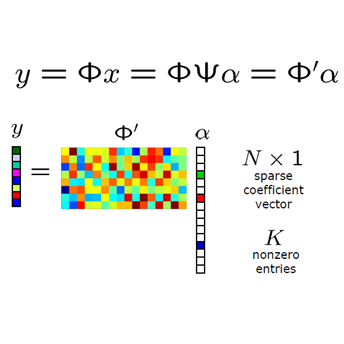Sparse reconstruction is an important aspect of MRI, helping to reduce acquisition time and improve spatial-temporal resolution. Popular methods are based mostly on compressed sensing (CS), which relies on the random sampling of k-space to produce incoherent (noise-like) artefacts. Due to hardware constraints, 1D Cartesian phase-encode under-sampling schemes are popular for 2D CS-MRI. However, 1D under-sampling limits 2D incoherence between measurements, yielding structured aliasing artefacts (ghosts) that may be difficult to remove assuming a 2D sparsity model. Reconstruction algorithms typically deploy direction-insensitive 2D regularisation for these direction-associated artefacts. Recognising that phase-encode artefacts can be separated into contiguous 1D signals, we develop two decoupling techniques that enable explicit 1D regularisation and leverage the excellent 1D incoherence characteristics. We also derive a combined 1D + 2D reconstruction technique that takes advantage of spatial relationships within the image. Experiments conducted on retrospectively under-sampled brain and knee data demonstrate that combination of the proposed 1D AliasNet modules with existing 2D deep learned (DL) recovery techniques leads to an improvement in image quality. We also find AliasNet enables a superior scaling of performance compared to increasing the size of the original 2D network layers. AliasNet therefore improves the regularisation of aliasing artefacts arising from phase-encode under-sampling, by tailoring the network architecture to account for their expected appearance. The proposed 1D + 2D approach is compatible with any existing 2D DL recovery technique deployed for this application.
翻译:暂无翻译



